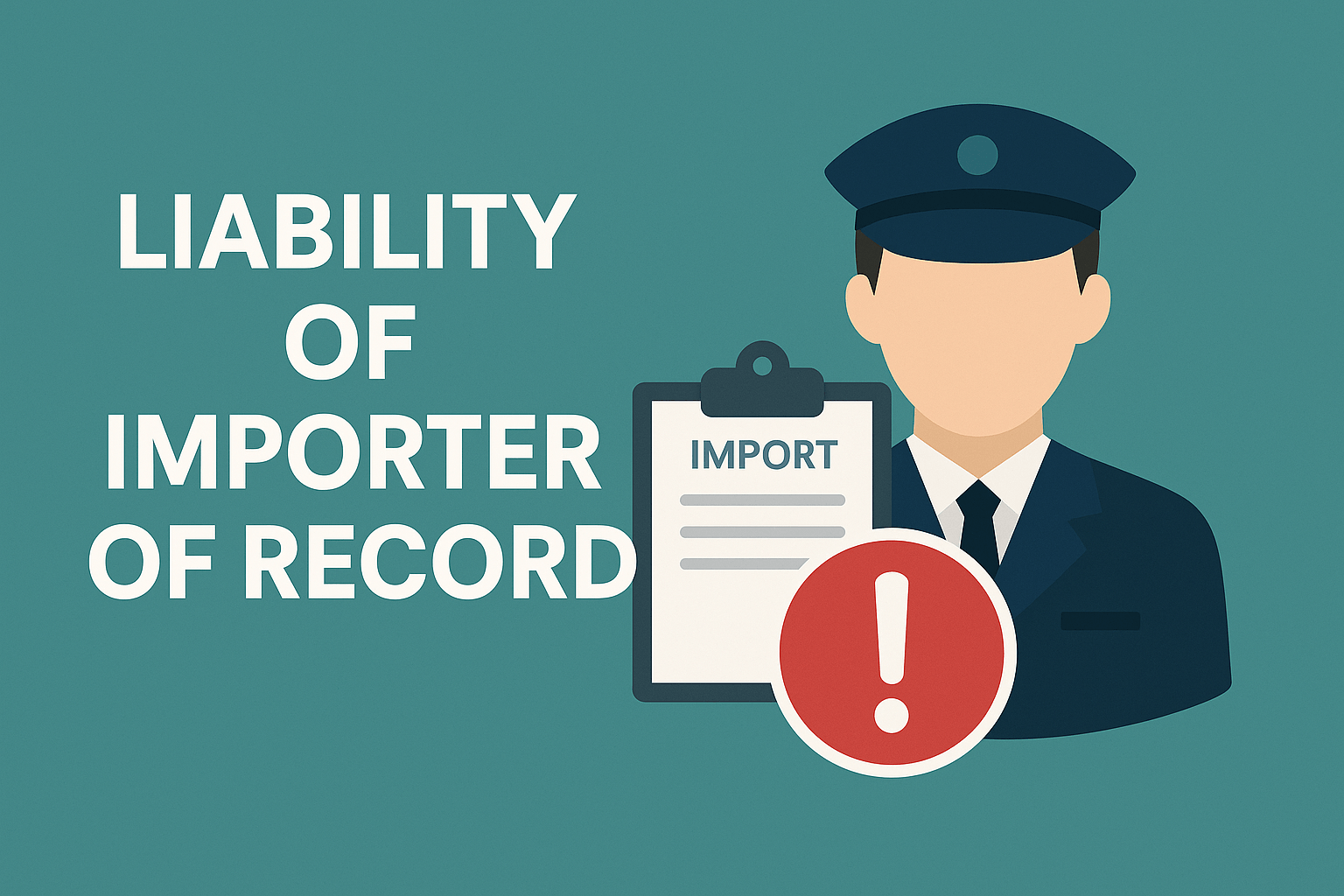Explore
- Home
- About Us
- Services
- Blog
- Contact Us
Quick links
- Guide to Import
- Guide to Export
- ICEGATE
- DGFT
- Get DSC

The Importer of Record (IOR) holds significant legal and financial responsibilities in international trade. The primary liability of the IOR is to ensure full compliance with the import laws and regulations of the destination country. This includes filing accurate customs documentation, classifying goods correctly under the Harmonized System (HS) code, and declaring the true value of goods. The IOR is also liable for payment of duties, tariffs, taxes, and fees associated with the shipment.
Beyond financial obligations, the IOR is accountable for the legality of the goods being imported—including whether they are allowed in the country, whether they require permits or licenses, and whether they meet local product standards and labeling regulations. If the imported items violate any law, the IOR can face fines, penalties, shipment seizure, or even criminal charges in serious cases.
Additionally, the IOR is responsible for maintaining records of the import transaction for a defined period, as required by law (e.g., 5–7 years in many countries). These records must be made available to customs authorities for audits or investigations.
In short, the IOR bears full legal responsibility for the shipment’s entry into the country and its regulatory compliance, making it a crucial role in global supply chains. Failure to fulfill these duties can result in legal, financial, and reputational risks for the importer.
EXCELLENTTrustindex verifies that the original source of the review is Google. Had a really good experience with JParks India. Rahul sir helped me a lot with my import work and were always active and responsive. Whatever documents or guidance was needed, they handled everything smoothly and explained things clearly. Felt stress-free throughout the process. Very helpful team, definitely recommend them if you’re doing import or export.Posted onTrustindex verifies that the original source of the review is Google. Quick & reliable servicePosted onTrustindex verifies that the original source of the review is Google. I took import consultancy services from Mr. Rahul at Jparks India Private Limited, and I must say he has excellent knowledge of the process. Really appreciate his professionalism and support. highly recommended!Posted onTrustindex verifies that the original source of the review is Google. very prompt and authentic services. team very responsive and courteous.Posted onTrustindex verifies that the original source of the review is Google. Wonderful Service and Very Fast. Love to recommend everyone. Thank youPosted onTrustindex verifies that the original source of the review is Google. I can get your import and export support in the future and I need it...I hopePosted onTrustindex verifies that the original source of the review is Google. Good service and posstive resposePosted onTrustindex verifies that the original source of the review is Google. Words fastest service for IEC Certificate and many for your Business They really understand client problem.Posted onTrustindex verifies that the original source of the review is Google. I found Mr Rahul Kolge quite professional & ethicalPosted onTrustindex verifies that the original source of the review is Google. Very Good and prompt response by the team and the work was completed in A day Appreciate itVerified by TrustindexTrustindex verified badge is the Universal Symbol of Trust. Only the greatest companies can get the verified badge who has a review score above 4.5, based on customer reviews over the past 12 months. Read more







